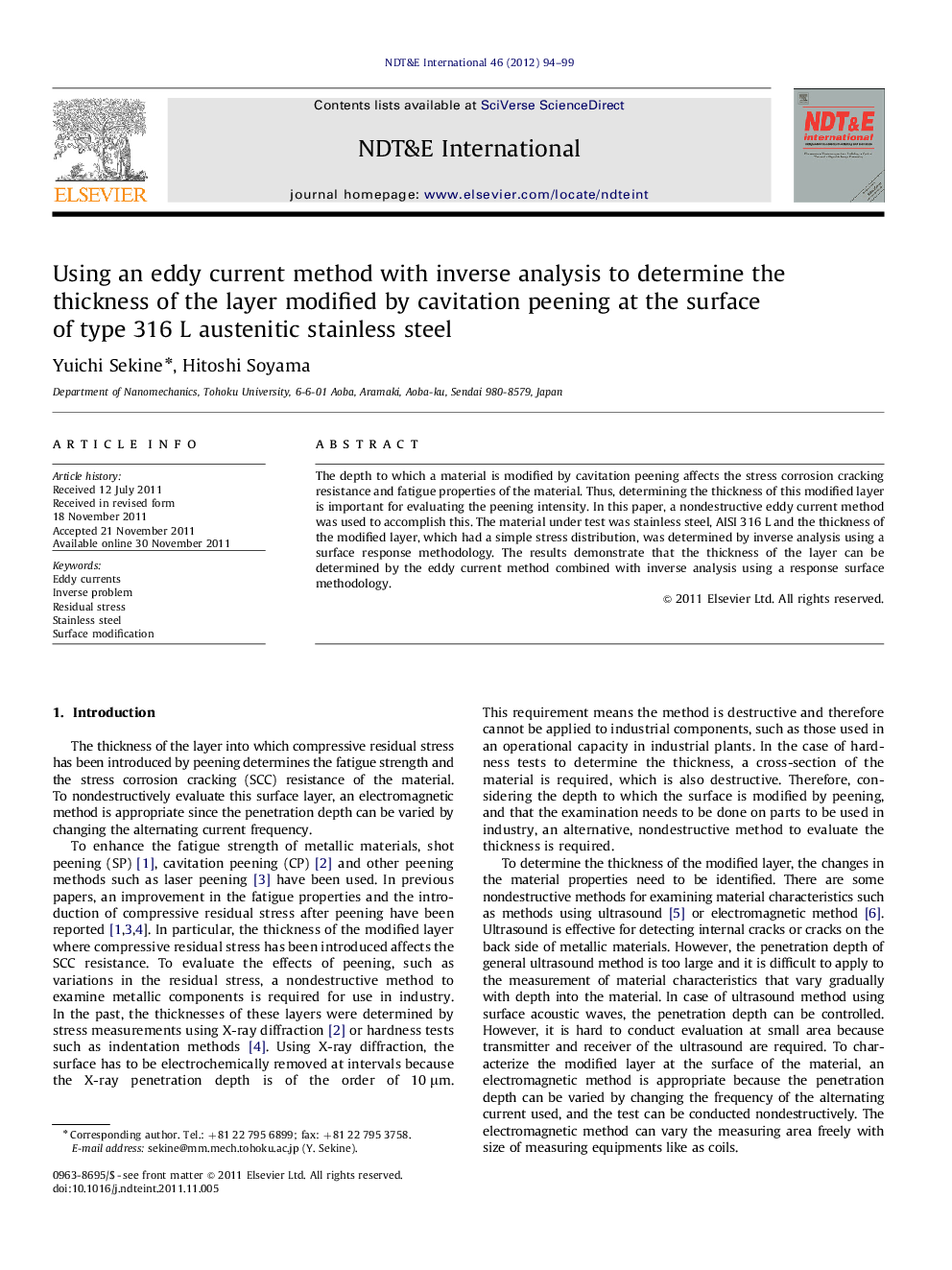| Article ID | Journal | Published Year | Pages | File Type |
|---|---|---|---|---|
| 295297 | NDT & E International | 2012 | 6 Pages |
Abstract
The depth to which a material is modified by cavitation peening affects the stress corrosion cracking resistance and fatigue properties of the material. Thus, determining the thickness of this modified layer is important for evaluating the peening intensity. In this paper, a nondestructive eddy current method was used to accomplish this. The material under test was stainless steel, AISI 316 L and the thickness of the modified layer, which had a simple stress distribution, was determined by inverse analysis using a surface response methodology. The results demonstrate that the thickness of the layer can be determined by the eddy current method combined with inverse analysis using a response surface methodology.
Related Topics
Physical Sciences and Engineering
Engineering
Civil and Structural Engineering
Authors
Yuichi Sekine, Hitoshi Soyama,
